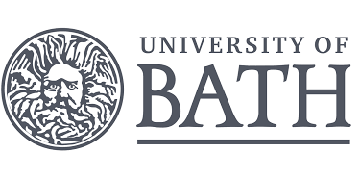University of Bath: School of Management researchers investigate diminishing support for survivors of exploitation in UK
Researchers from the University of Bath’s School of Management are part of a new collaboration aiming to uncover the realities facing survivors of exploitation in the UK in wake of controversial changes to support made under the Nationality and Borders Act in May 2022.
Funded by the Global Reporting Centre, the project brings together first-hand testimony, policy and non-intrusive photography to shed light on new challenges to identification and support, as well as envisaging what a more just future looks like for survivors of modern slavery.
PhD researcher Emma Barnes-Lewis and Professor Andrew Crane will give research context to themes that emerge from a workshop where survivors of trafficking, slavery and exploitation (known as experts by experience) will work with Maya Esslemont, an advocate and researcher in the field of human rights from After Exploitation (a non-profit group) and photojournalist Amy Romer, to share insight and develop areas of focus for new reporting on the subject.
“Modern slavery is often described as a crime hidden in plain sight,” said researcher Emma Barnes-Lewis. “This project is taking a fresh approach to the subject to understand more about the new barriers that the Nationality and Borders Act will impose on support for survivors.”
The project team explain that the Nationality and Borders Act contains provisions on nationality, asylum, immigration and victims of modern slavery, and that it subjects survivors of modern slavery to a stricter determination process and increased risk of incarceration in immigration detention, whilst narrowing pathways to support.
Among the provisions is a mechanism branded by the charity sector as a “trauma deadline”, which increases the risk of support rejection if survivors do not provide evidence in their case quickly enough.
Survivors are also subjected to criminal background checks during decision making, with many at risk of losing support if they have received a sentence of twelve months or more, despite nearly half of trafficking victims being forced to undertake criminalised activity as a direct result of their trafficking.
The workshop will take place at Glass Arch Studio in October 2022. Participants will have access to a specialist counselling session following the workshop, if they feel it would be helpful to debrief after dealing with difficult topics.
Maya Esslemont and After Exploitation have investigated injustice against survivors of exploitation through Freedom of Information (FOI). They have secured data on the immigration detention of potential victims, widescale failure to refer survivors for support, and erroneous decision making within the trafficking determination process.
Amy Romer is a British visual journalist, specialising in human rights and environmental issues. Her writing and photography have been published widely and in the UK she is best known for her photo series The Dark Figure*, which documented neighbourhoods affected by modern day slavery. She has given multiple talks on modern slavery and ethics in photography, including at the International Slavery Museum and universities globally.

